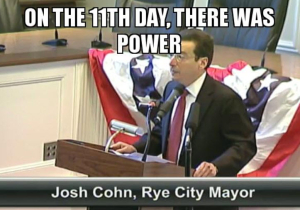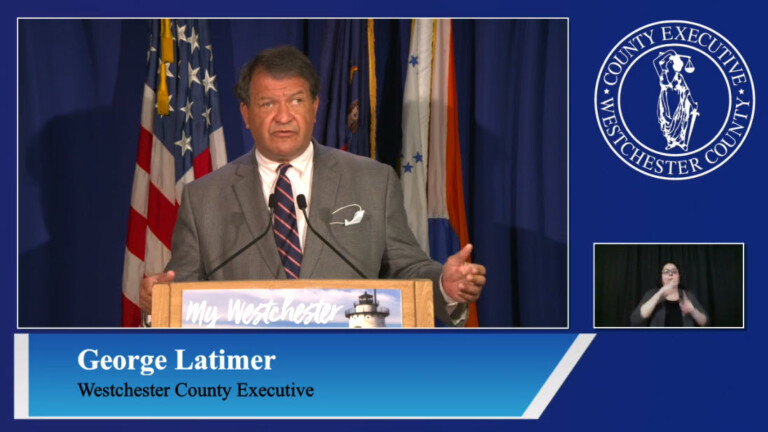Holding Court: Sticks and Stones

Holding Court is a series by retired Rye City Court Judge Joe Latwin. Latwin retired from the court in December 2022 after thirteen years of service to the City.
What topics do you want addressed by Judge Latwin? Tell us.
By Joe Latwin
A faithful reader recently asked me if they would be in jeopardy if they expressed an opinion that could be seen as hurtful. So, let’s talk about defamation!
Defamation comes into two flavors – libel and slander. In libel, the defamatory statement is written; in slander, the statement is oral. I enjoy reading defamation cases since they are usually juicy with interesting facts.
A statement is defamatory if it suggests a false fact that tends to expose the target to public hatred, contempt, ridicule, or disgrace – it would lead the average person in the community to form an evil or bad opinion of the target. It could also tend to discredit the target in his/her occupation, profession, trade or office. Not every unpleasant or uncomplimentary statement is defamatory. Some examples:
Defamatory – picture of the target in prison garb; target is mentally ill or a pauper; calling a wrestler a gorilla; saying parent had abandoned the spouse and refuses to support children; target was adulterous; the target was homosexual; saying a contractor “screwed” its customers; and saying the target was a criminal.
Not defamatory – target had cancer; referring to the target as a clown; calling the target a spy; the target was fired; being put on 100 worst landlord’s list; and a parent’s derogatory remarks about her child’s teacher as incompetent.
A curious twist – it was defamatory to the husband when wife said he infected her as a result of him patronizing prostitutes, but not defamatory to the wife.
Once you have proved the statement was defamatory, you must prove the target was harmed by the statement. Certain defamatory words are presumed to cause harm, requiring no proof of special harm, and are defamatory per se statements that: (1) impute incompetence or dishonesty; (2) impute commission of a serious crime (bribery, yes, harassment, no); (3) impute the target suffers from a loathsome disease (HIV yes, cancer, no); or (4) imputing serious sexual misconduct (adultery yes; having men visitors, no).
The statement must be false, meaning substantially inaccurate. It cannot be a statement of opinion since opinion does not assert or imply a provably false fact. Truth of the statement is a defense where the statement is made about a private, non-media person. When the target is a public figure, the target must show the person making the statement knew the statement was false or made the statement in reckless disregard of its truth or falsity. This is called “Constitutional actual malice”.
Technology and changing standards affect what is considered defamatory. In the past, calling someone homosexual was considered defamatory but with changing attitudes, it may no longer be seen as being as derogatory. Since Internet forums are seen as paces of free debate, they have less credence than other milieus. Calling someone a terrorist in a local newspaper discussion section was not defamatory, but rhetorical hyperbole. On the other hand, saying the target had put a horse’s head in a political rival’s pool was actionable.
The statement must have been published, i.e., communicated to a party other than the target. You can call me names to my face or in a letter to me, but once you call me names to another, you may have problems. The extant of the publication goes to the amount you have been damaged. The wider the publication, the more people who can support the damages done to you.
Be careful what you say about others. But as Teddy Roosevelt’s daughter Alice, had embroidered on a pillow “if you can’t say something good about someone, sit right here by me.”






